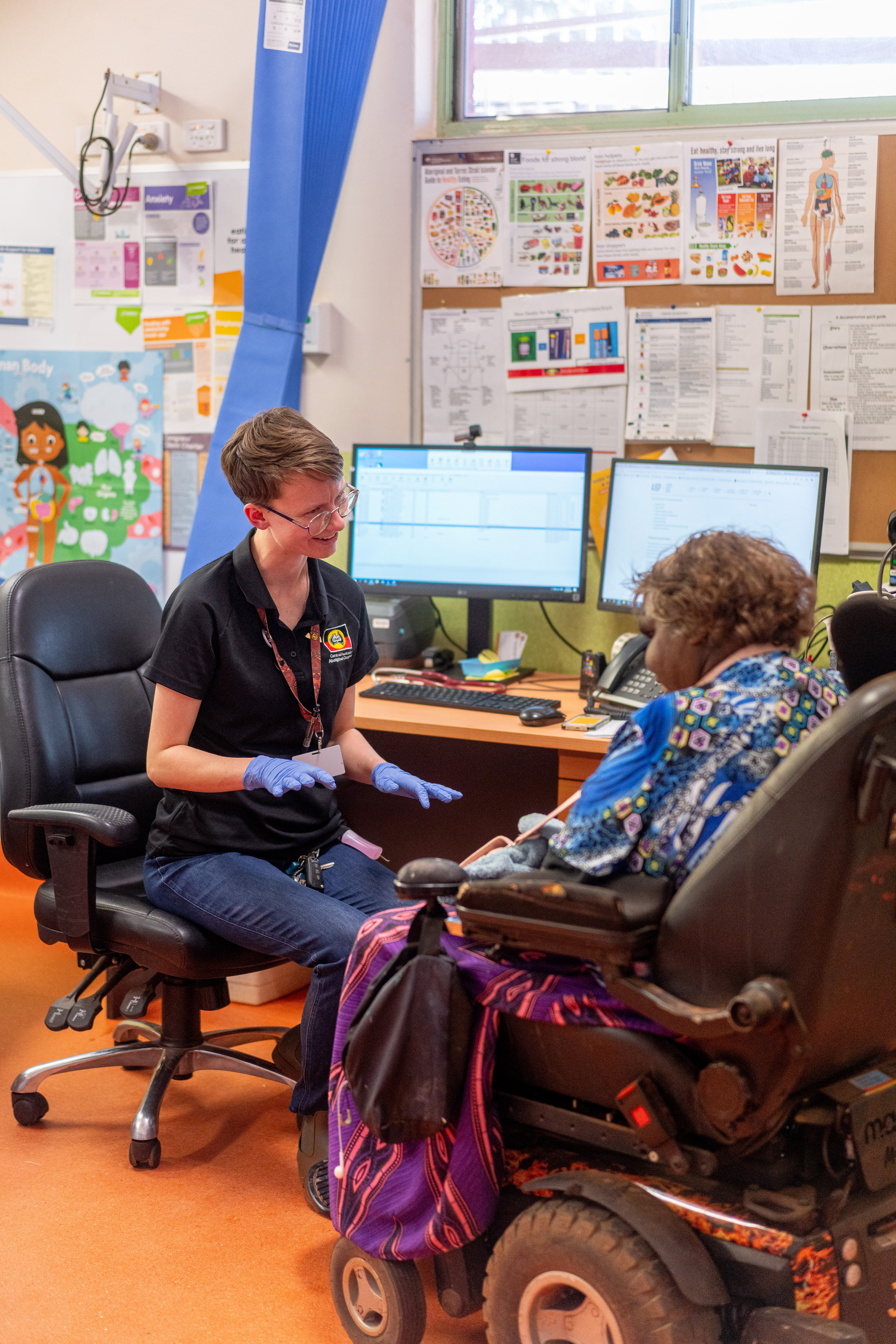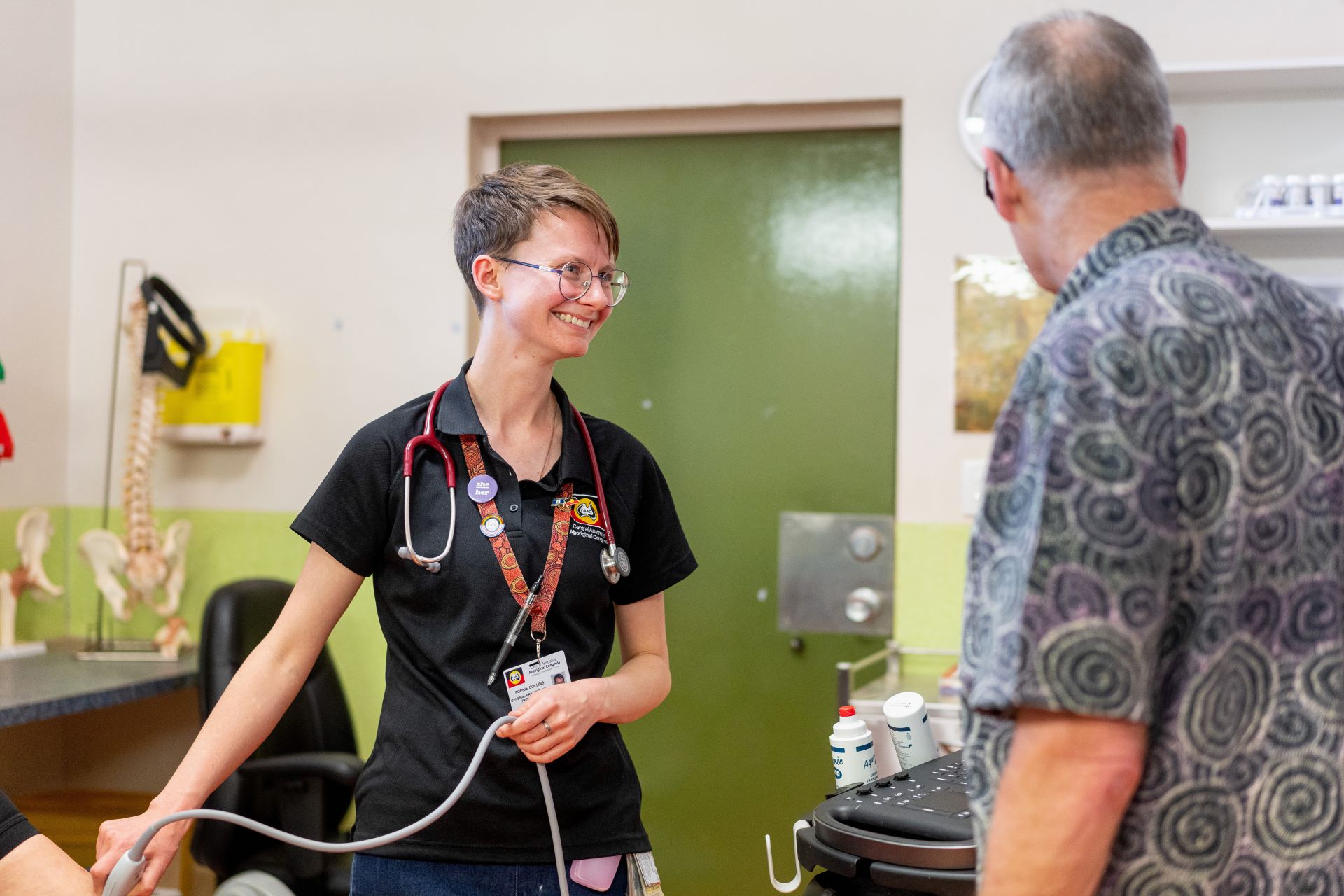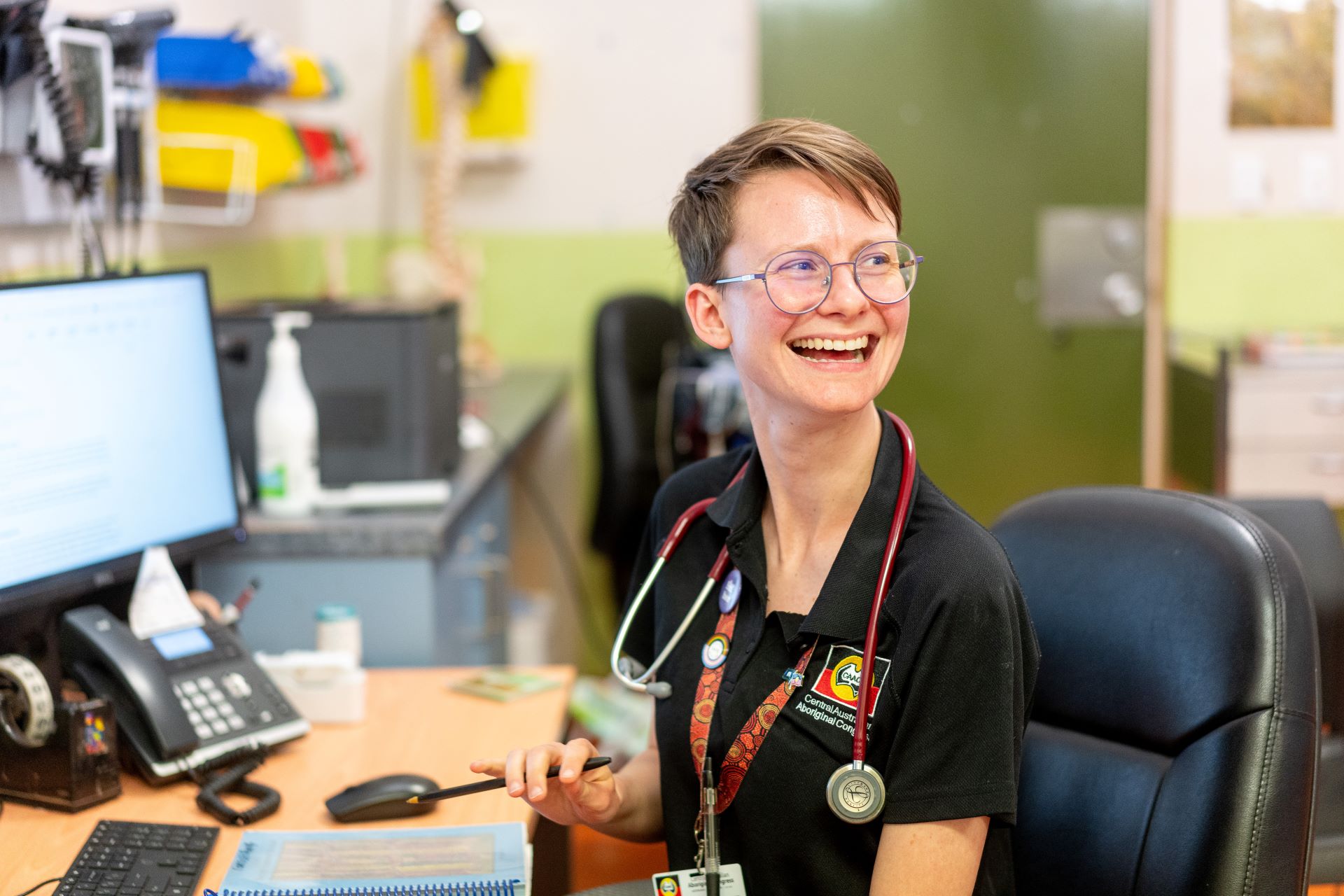Embracing community-centred healthcare over city life.
Located at the eastern end of Uluru, Mutitjulu first captured Sophie’s heart at age 15 when she participated in a cultural exchange program between her urban high school and the community. Immersed in the Pitjantjatjara language and cultural traditions of the Anangu, she was struck by the stark contrast to her life in Sydney.
“It was my first time leaving the city,” she recalls. “I remember sitting around the fire, watching the women make damper, sharing their stories so generously... It was really transformative. “It stayed with me”.
After completing high school, Sophie pursued medicine at the University of Newcastle, but her connection to Mutitjulu remained strong. She undertook placements in Aboriginal community-controlled clinics in Newcastle and Darwin before deciding on internship in Alice Springs, the nearest hospital to Mutitjulu.
In 2021, she joined the first cohort of registrars on ACRRM’s Rural Generalist Training Scheme (RGTS), drawn by the program’s flexibility and its focus on community-driven healthcare. She has chosen to undertake her Advanced Skills Training in Emergency Medicine.
“Working in the hospital, especially in the emergency department, I was constantly witnessing the end result of chronic diseases,” Sophie explains. “For me this really underlined the importance of high-quality primary healthcare.”
In addition to her interest in preventative medicine, Sophie is particularly passionate about addressing health inequities through culturally safe, community-led care.
“It’s really important to empower communities to improve their own health outcomes,” she says. “Aboriginal Community-Controlled Health Services like Congress play an essential role. “It’s a privilege to work for a strong Aboriginal organisation with a proud history of advocacy and activism.”

Working in Mutitjulu, a community of about 400 people, does come with challenges. Sophie lives in Yulara and drives 30 minutes through the Uluru-Kata Tjuta National Park - “the best commute in the world” - to the clinic, which is led by the Mutitjulu Health Service Board in partnership with the Central Australian Aboriginal Congress. She works with another doctor, nurses, and visiting allied health staff.
“It can be isolating at times,” Sophie admits, “but it's a great team at the clinic, and I'm well supported through the ACRRM remote supervision model. “I have regular online supervisor catch-ups and can call for advice when needed.”

The clinic’s resources are limited. Blood tests are sent as far as Perth for analysis, and results can take days to return. Sophie is undergoing ultrasound training to improve diagnostic capabilities locally, as most patients have to travel almost 500km to Alice Springs to get an x-ray. The isolation of the community means that every tool matters. “It's about making the best use of what we have and being creative with how we deliver care,” she says.
Despite these challenges, Sophie finds immense satisfaction in her work.
“One of the things I love most is the ability for people to just drop in without an appointment,” she says. “It’s all about building relationships, understanding who’s connected to who, and creating a sense of trust.
“There is a lot of opportunistic care, where an Aunty might bring a niece, and we end up having a conversation about both their health concerns and needs.
“The slower pace in Mutitjulu allows for more meaningful interactions and I enjoy having a good yarn with the people who come to the clinic.
“It really is a lot of fun, and everyone living and working here has a great sense of humour and warmth.”
In her free time, Sophie enjoys the natural beauty of the region. “I love spending time in the National Park, walking around Uluru, watching sunsets and moonrises. “It’s a really special place,” she says, her love for the landscape clearly evident.
Looking ahead, Sophie envisions a future where she can integrate hospital-based care with community health work. For now, she is focused on completing her six-month placement in Mutitjulu, learning from the community and the healthcare professionals around her. She is particularly proud of improving her Pitjantjatjara language skills, including at a recent two-week summer school learning from Anangu tutors.
“It’s been a 14-year journey from my first visit as a student to now. “I'm really grateful that ACRRM and Congress have made it possible for me to return and contribute to healthcare in this community. “It is amazing work, and I love it.”
Find out more about training in an Aboriginal Medical Service (AMS).



